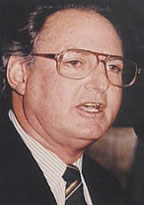By Tony Cozier
AS the directors of West Indies Cricket Board (WICB) met in emergency session in Barbados yesterday “to conduct a thorough assessment of all the ramifications” of Friday’s unprecedented abandonment of the Indian tour, they faced the prospect that the organisation could go out of business should the Board of Control for Cricket in India (BCCI) press a claim for damages along with its suspension of future bilateral tours.
The directors entered their meeting yesterday hours after the BCCI confirmed its intention to defer future bilateral tours; the International Cricket Council (ICC) Future Tours Programme (FTP) lists India for five series against the West Indies in the next eight years, including four visits to the Caribbean.
Although it did not specifically mention earlier speculation that it would seek compensation from the WICB for financial losses, it stated that it would start legal proceedings.
It is estimated that the revenue shortfall from 17 blank playing days on the cancelled tour, mainly through television rights and ticket sales, is over US$60 million.
Doubts over the WICB’s survival had already been raised before the present crisis by the chartered accountants, KPMG, in the last financial statement for the year ending September 30, 2013.

KPMG warned that the net loss for the preceding year of US$5,821,413, along with shareholders’ deficiencies of US$5,693,323, “raise substantial doubt that the company will be able to continue as a going concern”.
It pointed out that the WICB’s revenue is “cyclical in nature”, depending on the popularity of the various tours undertaken by the West Indies team.
“During less popular tours, the company is significantly dependent on financing from an overdraft facility,” it added.
Only tours to the Caribbean by India and England are profitable, mainly through television rights and ground perimeter advertising and, in England’s case, thousands of tourists who follow their team.
England are carded by the International Cricket Council (ICC) Future Tours Programme (FTP) for three Tests next April and May.
Last year, two Tests each against Sri Lanka and Pakistan under the ICC’s FTP were scrapped to accommodate of a triangular ODI tournament between West Indies, Sri Lanka and India and five ODIs and two T20s against Pakistan.
Revenue from these were diminished by an earlier series of two Tests, three ODIs and two T20s against Zimbabwe, the bottom-placed team in the ICC rankings.
New Zealand and Bangladesh, both alongside the West Indies at the bottom end of the rankings, were the visitors this year; daily attendance at their matches was rarely over 1,000.
KCMG’s 2013 statement reported that the WICB had projected “positive cash flows over the next two years”. It based its optimism on revenue from its share of the 2014 ICC World T20, the 2015 World Cup in Australia and New Zealand and the signing on of a “major sponsor” for the Super50 tournament.
The Super50 was staged exclusively in Trinidad and Tobago. Its sponsor was Nagico Insurance with financial backing from the Trinidad and Tobago government which is reportedly still to pay the WICB its share in full.
Ironically, the present impasse comes nine months after Australia, England and India took over as leaders of the ICC, with the support of gthe WICB and all but one of its other full members.
At the time, president Dave Cameron said that the new arrangement “would allow the WICB to increase the number of profitable tours it hosts while reducing the number of unprofitable tours it is obliged to host under the FTP”.
Circumstances have been dramatically changed by the upheavals in India.









